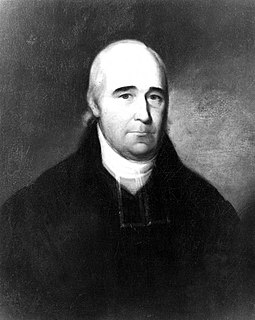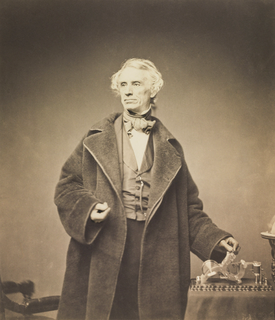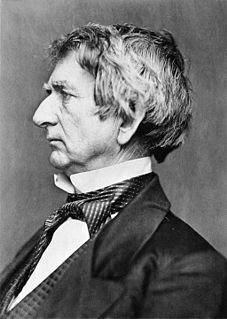A Quote by Richard Furman
...the right of holding slaves is clearly established in the Holy Scriptures, both by precept and example... Had the holding of slaves been a moral evil, it cannot be supposed that the inspired Apostles ... would have tolerated it for a moment in the Christian Church. In proving this subject justifiable by Scriptural authority [Luke 12:47], its morality is also proved; for the Divine Law never sanctions immoral actions.
Quote Topics
Actions
Also
Apostles
Authority
Been
Both
Cannot
Christian
Christian Church
Church
Clearly
Divine
Divine Law
Established
Evil
Example
Had
Holding
Holy
Holy Scriptures
Immoral
Inspired
Law
Luke
Moment
Moral
Moral Action
Moral Evil
Morality
Never
Precept
Proved
Proving
Right
Sanctions
Scriptures
Subject
Supposed
Tolerated
Would
Related Quotes
In regard to the divine and holy mysteries of the faith, not the least part may be handed on without the Holy Scriptures. Do not be led astray by winning words and clever arguments. Even to me, who tell you these things, do not give ready belief, unless you receive from the Holy Scriptures the proof of the things which I announce. The salvation in which we believe is not proved from clever reasoning, but from the Holy Scriptures.
When it can be proved that the observance of Christmas, Whitsuntide, and other Popish festivals was ever instituted by a divine statute, we also will attend to them, but not till then. It is as much our duty to reject the traditions of men, as to observe the ordinances of the Lord. We ask concerning every rite and rubric, "Is this a law of the God of Jacob?" and if it be not clearly so, it is of no authority with us, who walk in Christian liberty.
Think of US slavery in 1850, or the subjection of women. Both of these injustices could have been - and were! - defended by pointing out, quite correctly, that this situation of slaves and women had been improving throughout the preceding century. Slaves, in particular, were worked less hard, beaten and raped less frequently, better fed, and less often ripped apart from their families. So would a celebration of moral progress have been appropriate in 1850? Surely not. Slavery could have been and should have been abolished - then, if not before.
As to those other things which we hold on the authority, not of Scripture, but of tradition, and which are observed throughout the whole world, it may be understood that they are held as approved and instituted either by the apostles themselves, or by plenary Councils, whose authority in the Church is most useful, e.g. the annual commemoration, by special solemnities, of the Lord's passion, resurrection, and ascension, and of the descent of the Holy Spirit from heaven, and whatever else is in like manner observed by the whole Church wherever it has been established.
In those days, we imagined ourselves as being kept in some kind of holding pen, waiting to be released into our lives. And when the moment came, our lives -- and time itself -- would speed up. How were we to know that our lives had in any case begun, that some advantage had already been gained, some damage already inflicted? Also, that our release would only be into a larger holding pen, whose boundaries would be at first undiscernible.
It's clearly the case that there's not some moment in American history when every evangelical is holding hands with every Catholic who is holding hands with every mainline Methodist, or what have you. Obviously, American Christianity was deeply divided in all kinds of ways at mid-century too. But there was a kind of convergence going on. Even though Reinhold Niebuhr, the great mainline Protestant theologian, didn't think highly of Billy Graham, he and Graham still, clearly, had more in common, both theologically and in their attitudes toward religion in public life.































